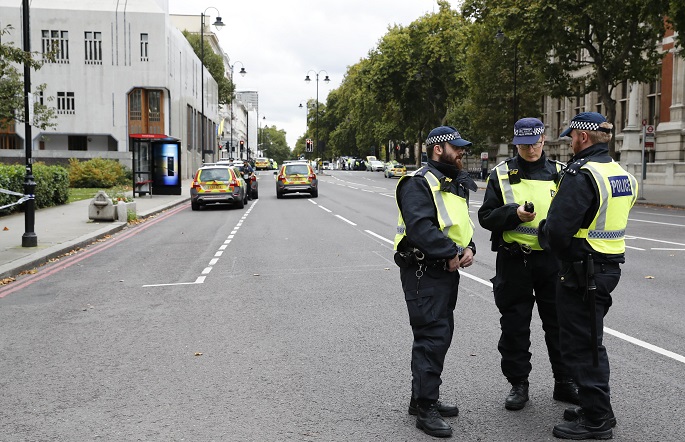New police unit set up to protect Britons after Brexit
Published : 19 Sep 2018, 00:23
The British government on Tuesday gave police 2 million pounds to launch a new unit in order to plan for a possible hard-Brexit amid warnings that it will be harder to protect the public after Britain leaves the European Union (EU) in March 2019.
A no-deal Brexit would make it harder to protect UK citizens, a leading police officer has warned. Brexit would mean the loss of an array of crime-fighting tools and that any planned replacements would be less effective.
Senior officers said that investigators will lose access to 40 crime fighting tools, including the European Arrest Warrant, which would hinder cross-border investigations such as the hunt for the Russian intelligence officers suspected of the Salisbury Novichok attack.
The British Home Office gave the new fund to police to work on replacing systems such as the European Arrest Warrant.
British police said it would take longer to identify foreign criminals being held in custody in the UK.
The 50-strong teams planning for a hard-Brexit will include police and civilian staff. It will focus on helping police forces with using fall back alternatives if the U.K. suddenly loses its access to the current EU data sharing and cooperation tools.
Police will have to revert to bilateral agreements and Interpol.
Sara Thornton, chair of Britain's National Police Chiefs' Council, said fallback systems would be slower and "ultimately less effective."
"It will make it harder to protect UK and EU citizens," she said. "We are determined to do everything we can to mitigate that but it will be harder."
Officers said one EU crime-fighting tool, the Schengen Information System database, was accessed by police 539 million times last year.
"Existing EU tools allows us to respond quickly and intelligently to crime and terrorism in the UK and the EU -- they make us better at protecting the public," Thornton said.
Deputy assistant commissioner Richard Martin, the national police lead for Brexit, said if police lost the EU tools they could no longer share real-time alerts for wanted persons, including serious criminals.
British police would also be slower responding to missing people on either side of the Channel.
The ability to track and map terrorist and criminal networks across Europe would also be reduced.
Martin said, "Criminals don't respect borders -- 70 percent of transient organised crime groups operate in more than three countries."
"If we lose all these tools it becomes much more challenging," he said. "Policing does not stop, but it will be slower and less effective."
Chief constable Charlie Hall emphasised that there was no intelligence of widespread disorder but they were planning for every eventuality.


